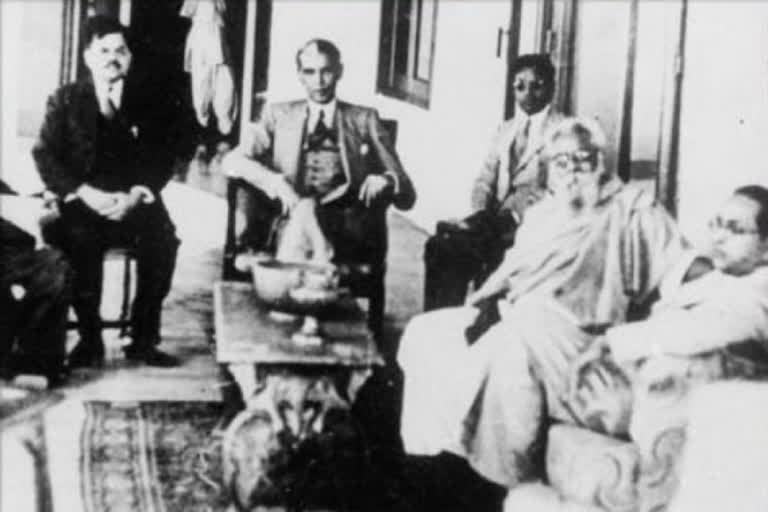Chennai:Amidst the ongoing political uproar against the Centre's alleged move to impose the Hindi language, it is interesting to note how vehemently Tamil Nadu has opposed 'similar' moves in the past. Between 1937 and 1940, there were strong anti-Hindi agitations led by the Dravidian ideologue, E.V. Ramasamy Niakar aka Periyar in the state.
In 1937, during the British Raj, when the Indian National Congress government in Madras Presidency led by C. Rajagoplachari as the Chief Minister tried to introduce compulsory teaching of Hindi in the schools of Madras presidency, the then opposition party in Tamil Nadu - Justice party, which later went on to become the Dravidar Kazhagam or DK - the ideological powerhouse of the present DMK, announced a series of agitations across the Madras Presidency.The agitation lasted for three years and had strongly opposed the move of introducing compulsory Hindi teaching.
There were protest marches, sloganeering, agitations and even stone pelting during the movement. However government retorted with strong measures including lathi charges and later firing.Two people, Thalamuthu and Natarajan, lost their lives in the agitation and 1,139 people including women and children were arrested.
The agitations continued for three years and when the British government came to power after the Congress government resigned in 1939, the decision to impose the Hindi language was revoked. It is to be noted that C. Rajagopalachari was a great proponent and supporter of the Hindi language and even before he had assumed power, he had expressed his desire for Hindi learning in South India and had written several articles supporting the same including a scholarly piece in 'Sudesamithram' on May 6, 1937, making his intentions crystal clear.
There are records that organisations like Hindustani Seva Dal and Hindustani Hitashi Sabha, two pro-Hindi organisations had lobbied for this. On August 11, 1937, a month after he came to power, Rajaji made his intentions clear and announced a policy document for the need to learn Hindi in schools. He argued that learning Hindi will reduce the North-South divide and that people will be more equipped to search for jobs and for doing business with the knowledge of Hindi. Chief Minister Rajagopalachari went on to pass a government order (GO) making the teaching of Hindi compulsory in 125 secondary schools in the presidency.
The Official Language Act of 1963 was the next major development that triggered the anti-Hindi agitations in the state with the lone representative of the DMK in the Rajya Sabha, C.N. Annadurai speaking for the continuation of English as official language as it would distribute advantages and disadvantages evenly among Hindi and non-Hindi speakers.
